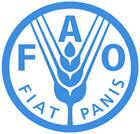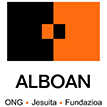Inades-Formation Rwanda
NATIONAL ASSOCIATION SINCE August 1977
Key figures
20,677 beneficiaries
79 organizations supported
03 completed projects
Story
Inades-Formation Rwanda was created in 1976. It obtained legal personality by ministerial decree n ° 119 of August 22, 1977, revised by ministerial decree n ° 75/11 of April 18, 2006. Since May 29, 2013, Inades -Formation Rwanda has been officially recognized as a national NGO in accordance with Law No. 04/2012 of 02/17/2012 governing the creation and operation of NGOs in Rwanda and has received the official approval of ” Rwanda Governance Board ”(RGB). Inades-Formation Rwanda belongs to a pan-African network, Inades-Formation, which is currently established in ten countries: Burkina Faso, Burundi, Cameroon, Chad, Côte d’Ivoire, Democratic Republic of Congo (DRC), Kenya, Rwanda, Tanzania and Togo.
Projects

VVS MISEREOR project

JP-RWEE project

FONERWA project
The authorities of Inades-Formation Rwanda
1. The General Assembly
The General Assembly is the supreme organ of the association. It determines the general orientations of the activity of the Association and the objectives to be pursued.
2. The Executive Committee
The Executive Committee has the most extensive powers on behalf of the National Association in matters of administration. In particular, it has the powers of:
- Appoint the Director of the National Office and submit it to the approval of the President of the International Association
- Ensure the application of the decisions of the General Assembly;
- Approve the action plan;
- Approve the Annual Work Plan (PTA) and the corresponding budget;
- Read more ….
3. The Supervisory Board
The Supervisory Board has the following missions, among others:
- Monitor the achievement of the Association’s corporate purpose;
- Periodically monitor the Association’s expenses and suggest ways and means of optimizing the budget for overheads;
- Follow the management of the association by the Executive Committee and offer advice for improvement if necessary;
- Ensure the preservation of heritage;
- Ensure compliance with legal and regulatory requirements as well as the decisions of the bodies.
4. The National Office

Mr. KARANGWA Innocent
National Director

Mr. TUYIZERE Emmanuel
Director of Administration and Finance

Mr. NSHIMIYIMANA Manasse
Director of Programs

Mrs RUGAMBA Beliane
Administrative assistant

Mrs ISHEJA Rita Léonie
Chief Accountant

Mr. HABIMANA Jean-Paul
Project coordinator

Mr. MUTABAZI Philippe
Switchboard operator

Mr. NSABIMANA André
Driver

M. NIZEYIMANA Leonard
Project coordinator

Mr. NTASINGWA Eugene
Project coordinator

Mr. BICAMUKAGA Remec
Project Manager

Mr. MUHOZA Amon
Project Manager

Mrs MAHIRWE Aline
Project Manager

Mrs UMUGWANEZA Claudine
Employee
Contact Inades-Formation Rwanda
Phone
(+250) 788 57 10 20
(+250) 735 29 87 86
Geographic address
GASABO District, Remera Sector, Rukiri II, Amahoro, Street KG 109 ST2
E-mail address
inadesformation.rwanda@inadesfo.net
PARTNERS
















